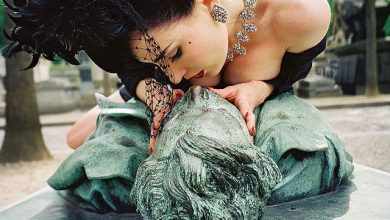Block Title
-
Literature/Poetry

Sindhu – Our Lifeline and Worship
The river is our Holi and our Eid. And when we love—it is a form…
Read More » -

-

-

-

-

-

-

-

-

-

-


The river is our Holi and our Eid. And when we love—it is a form…
Read More »











The article highlights critical issues like child marriages, domestic violence, and the pay gap, presenting a perspective on the true…
Read More »
Every day, 3 to 5 women in Pakistan are victims of violence, including honor killings. This shows how deep patriarchy…
Read More »
More than 35 women from diverse professional backgrounds, interacted with each other and learned about the core topics Karachi, Sindh…
Read More »
In the first phase, these centers will be set up in government offices and universities to facilitate working mothers All…
Read More »
Studies suggest, globally one in three women has been raped, beaten, coerced into sex or abused in her life time…
Read More »
In this world which believes in gender equality, in which women are educated and economically dependent, why are they still…
Read More »
The clock on societal change is ticking; let’s break these chains of misunderstanding and inequality about women By Narindar Kumar…
Read More »
Women Journalists from Balochistan and Sindh attended Digital Media Businesses Conference held in Karachi Karachi, Sindh Individualland Pakistan, a research-based…
Read More »
In Pakistan, gender inequality remains a significant barrier to economic and social development By Amir Murtaza In today’s fast-paced world,…
Read More »
Pakistan’s economic future is intrinsically tied to the empowerment of women entrepreneurs By Amir Murtaza Over the past few years,…
Read More »
Assembly and party membership of those who ridiculed the female member of assembly should be suspended, and those who harassed…
Read More »
National Consultation on Single Women held in New Delhi to address the unique challenges faced by single women in all…
Read More »
240-seat Boeing 737 transported overland from Karachi to Hyderabad Aamir Latif KARACHI, Sindh, Pakistan For the first time in Pakistan’s…

Alabai Day is the National Holiday to honor Turkmen Alabai, a large dog breed that is traditionally used to guard…

Women from all over come to the cemetery to kiss Victor’s lips, and rub the bulge in his trousers. By…

Latin American politicians, activists, artists and athletes are among the 100 most influential women in the world in 2002. Monitoring…

The river is our Holi and our Eid. And when we love—it is a form…
Read More »


